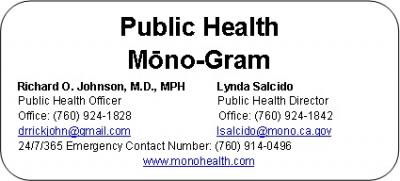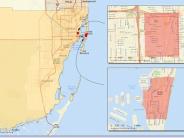Mono-Gram - Advice for people living in or traveling to South Florida
Advice for people living in or traveling to South Florida
The Florida Department of Health has identified two areas of Miami-Dade County where Zika is being spread by mosquitoes. In addition to the previously identified area in the Wynwood neighborhood, there is now mosquito-borne spread of Zika virus in a section of Miami Beach.
This guidance is for people who live in or traveled to the identified area of Miami Beach any time after July 14. This guidance also still applies for those who live in or traveled to the previously identified Wynwood area any time after June 15. These timeframes are based on the earliest time symptoms can start and the maximum 2-week incubation period for Zika virus.
Pregnant women and their partners
- Pregnant women should not travel to these areas.
- Pregnant women and their partners living in or traveling to these areas should follow steps to prevent mosquito bites(http://www.cdc.gov/zika/prevention/prevent-mosquito-bites.html).
- Women and men who live in or traveled to these areas and who have a pregnant sex partner should use condoms or other barriers to prevent infection(http://www.cdc.gov/zika/transmission/sexual-transmission.html) every time they have sex or not have sex during the pregnancy.
- Pregnant women and their partners who are concerned about being exposed to Zika may want to consider postponing nonessential travel to all parts of Miami-Dade County.
- All pregnant women in the United States should be assessed for possible Zika virus exposure and signs or symptoms of Zika during each prenatal care visit.
- Pregnant women who live in or frequently travel to these areas should be tested in the first and second trimester of pregnancy.
- Pregnant women with possible Zika exposure and signs or symptoms of Zika should be tested for Zika.
- Pregnant women who traveled to or had unprotected sex with a partner that traveled to or lives in these areas should talk to their healthcare provider and should be tested(http://www.cdc.gov/zika/symptoms/diagnosis.html) for Zika.
Couples thinking about getting pregnant
- Women with Zika should wait(http://www.cdc.gov/zika/pregnancy/thinking-about-pregnancy.html) at least 8 weeks after symptoms began and men with Zika should wait at least 6 months after symptoms began to try to get pregnant.
- Women and men who live in or frequently travel to these areas should talk to their healthcare provider.
- Women and men who traveled to these areas should wait at least 8 weeks before trying to get pregnant.
Women and men of reproductive age
- Effective contraception to prevent pregnancy(http://www.cdc.gov/zika/pregnancy/preventing-pregnancy.html) in women and their partners who want to delay or prevent pregnancy is a key prevention strategy for Zika.
(http://www.cdc.gov/zika/images/intheus/maps-zika-us/local-fl-1500px.jpg)
Areas in Miami, FL where Zika virus is being spread by mosquitoes.



